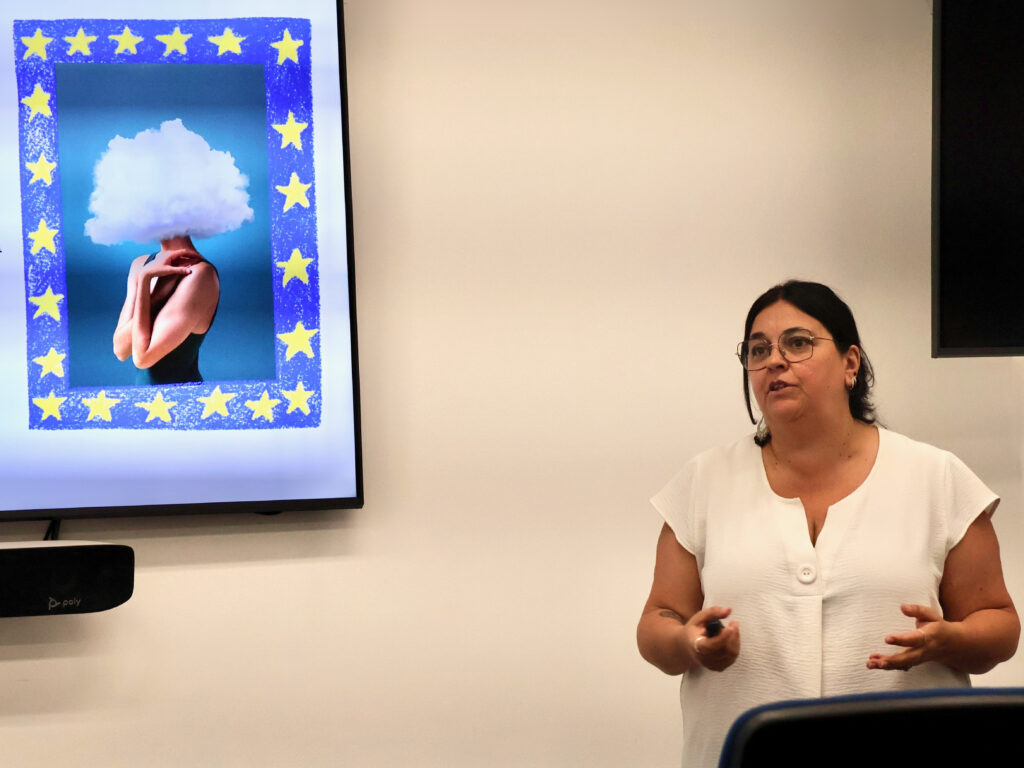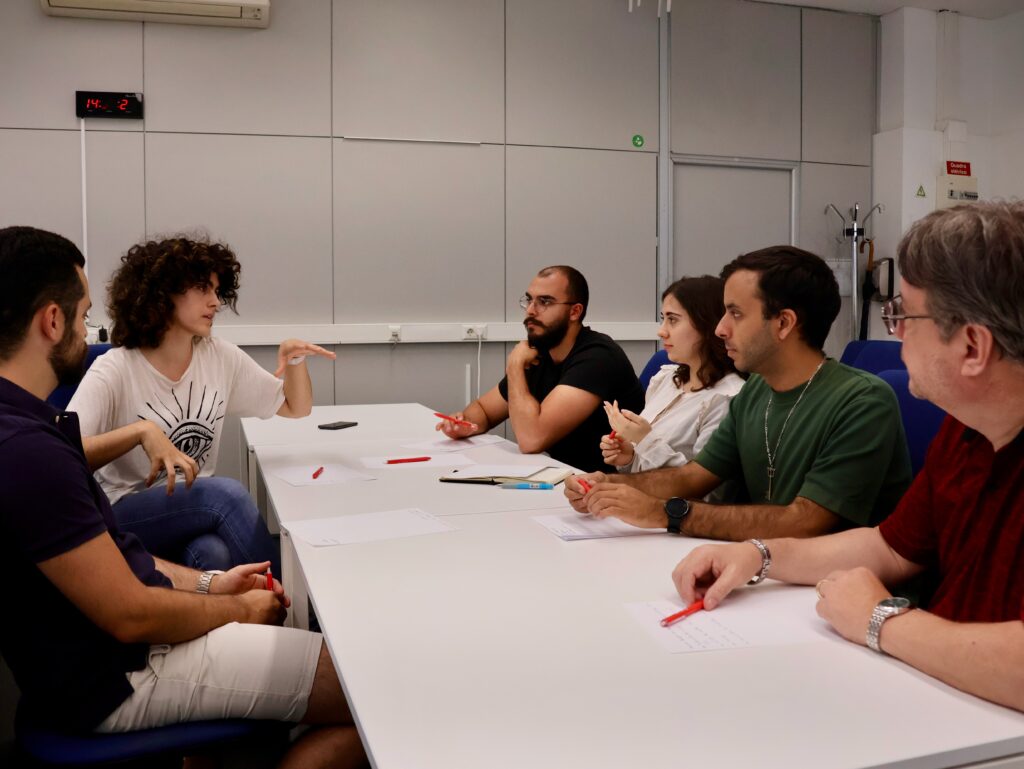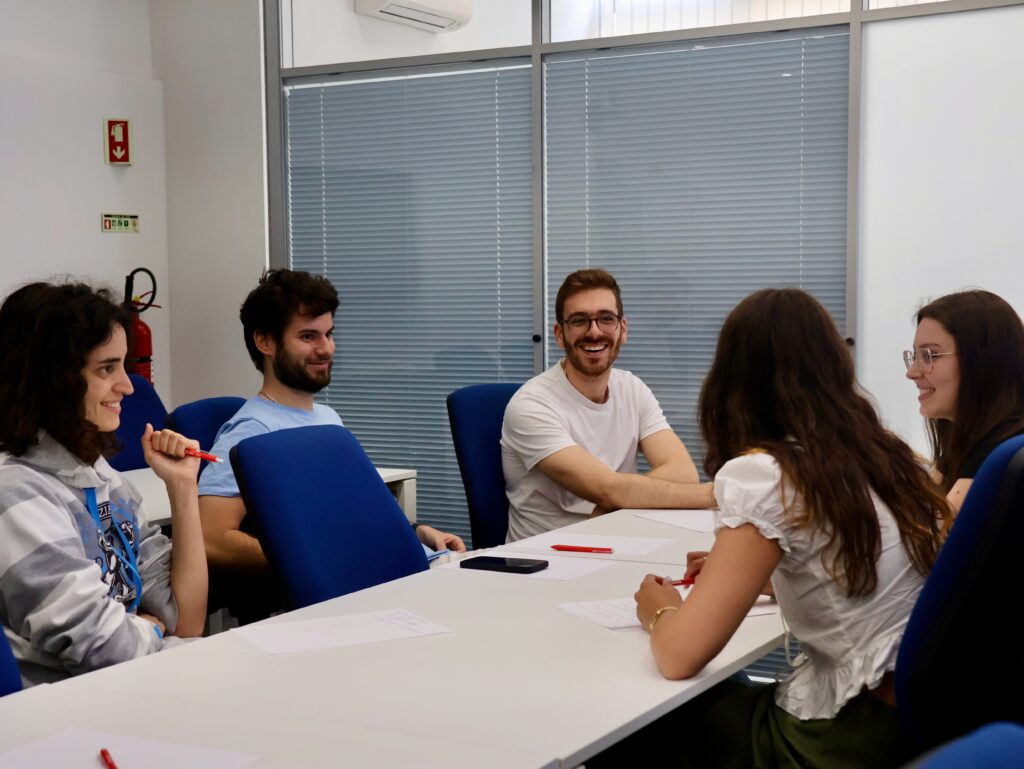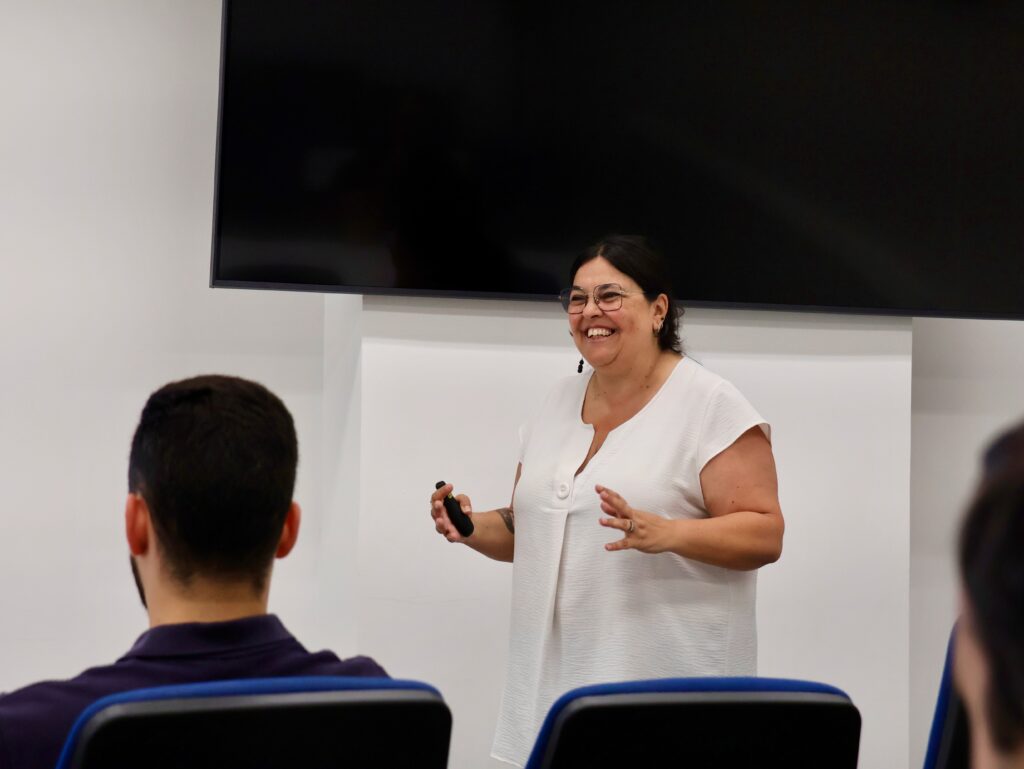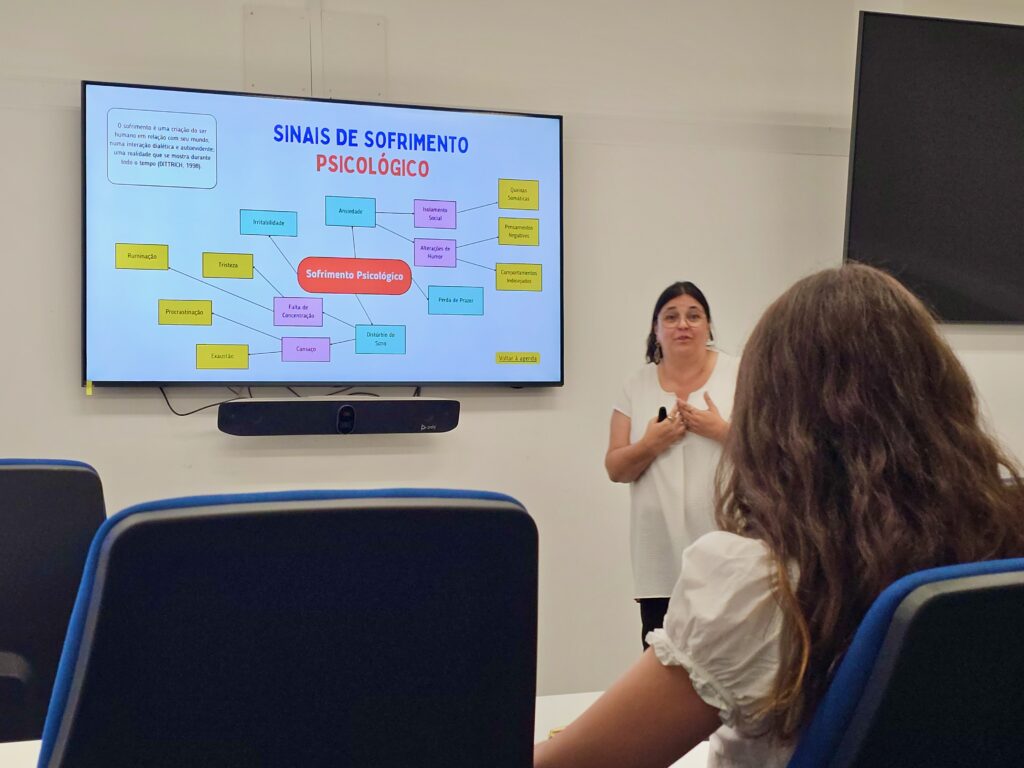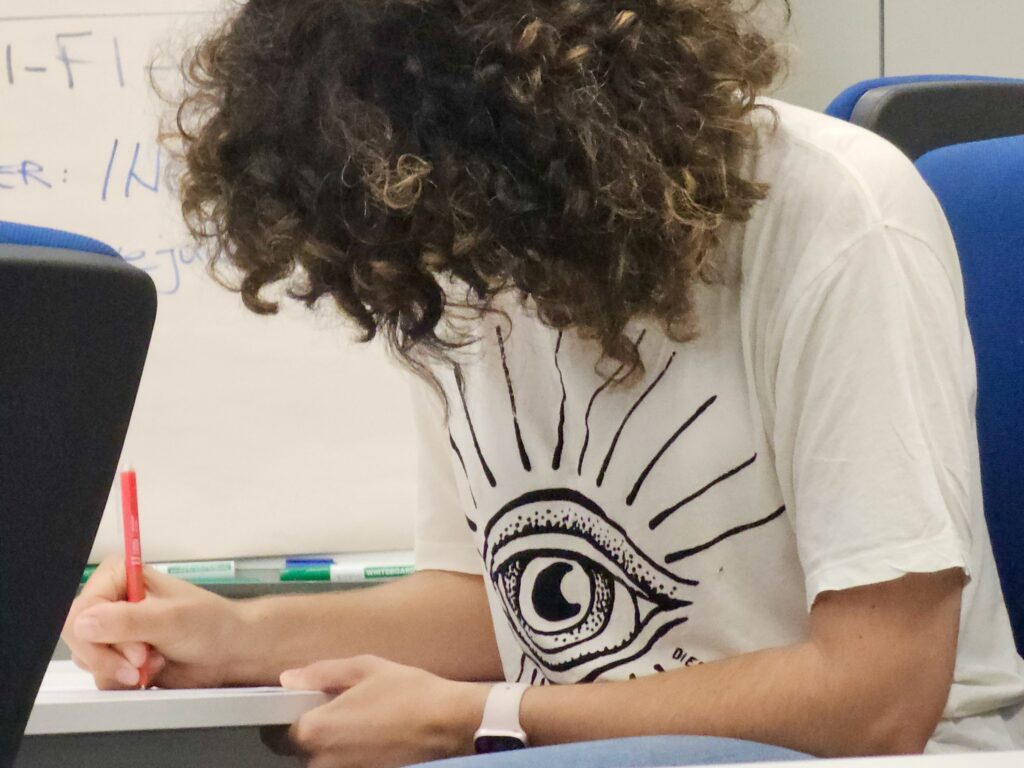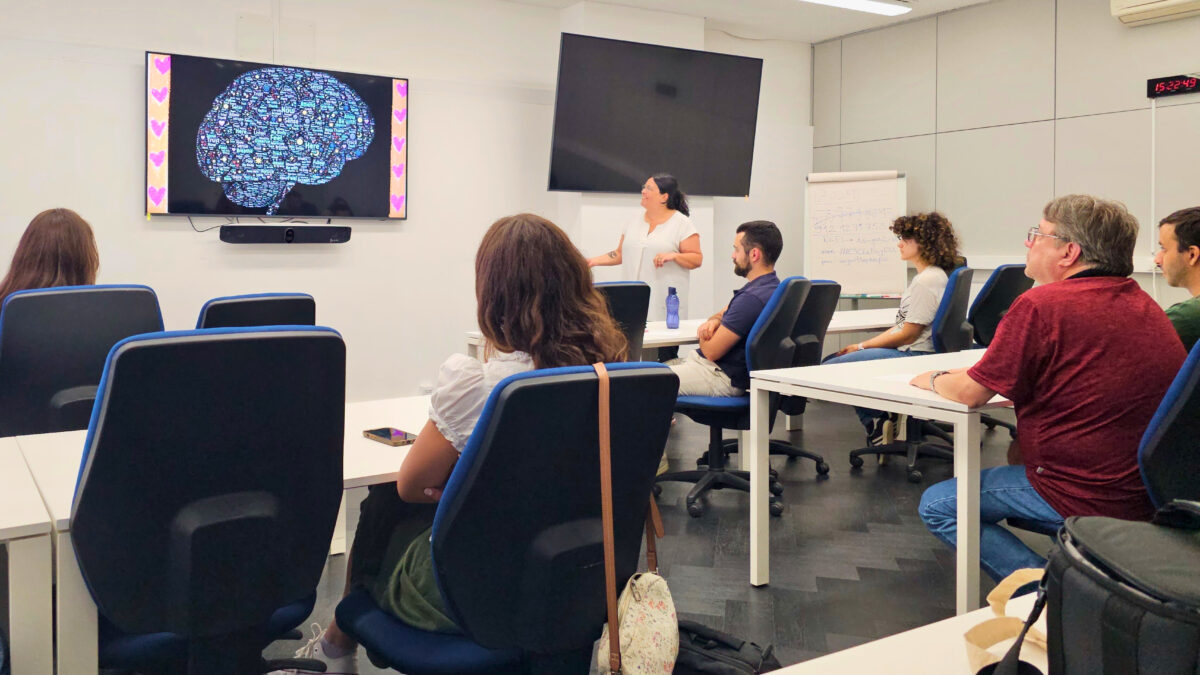
Photo Credit: INESC-ID
“Healthy Mind, PhD in Progress”: Supporting PhD Student Wellbeing at INESC-ID
Can research institutes excel without caring for the wellbeing of their people?
It’s increasingly clear that real excellence in R&D+i is not just about brains or breakthroughs, it’s also about the social support systems behind them. With initiatives like the PhD Students Meetup on mental health and wellbeing last June, INESC-ID is taking part in this shift towards a new scientific culture.
For many PhD students, the path toward a scientific career can be isolating. That’s why moments like the INESC-ID PhD Students Meetups matter. Part of an ongoing series of community-building initiatives designed to connect and empower our students, June’s event brought together around 20 participants from different research areas and stages of their doctoral journey for a hands-on workshop titled “Mente Sã: PhD em Progresso” (Healthy Mind: PhD in Progress). The session was led by Carla Boura, Coordinator of the Mental Health and Wellbeing Program at the University of Lisbon, and former Head of Student Support at Técnico’s Oeiras campus, both key institutions in the INESC-ID ecosystem.
Over the course of the half-day session, students paused, reflected, and explored tools to support their mental wellbeing – from recognising signs of psychological distress to practicing self-care and stress management strategies, including breathing and meditation exercises. The workshop also invited group discussions and joint reflection on common challenges, long-term wellbeing practices, and available resources.
A structural problem: stress, isolation, and academic pressure
The session began by framing the structural pressures faced by PhD students, including the solitary nature of certain research fields, a competitive culture, and the absence of a strong academic community.
A global survey of over 6000 PhD students, reported in a 2019 Nature article by Chris Woolston, found that more than one-third sought help for anxiety or depression with many other reporting mental health struggles. The study also showed that students face multiple pressures. External factors include unstable funding, unclear career prospects, excessive workloads, or lack of institutional support. Internal challenges like imposter syndrome, anxiety or burnout, are also common. Nearly one in five students also reported experiencing bullying or harassment. For international students, visa issues and cultural adaptation can add another layer of stress and isolation.
These stressors resonated with the students present, who shared their challenges in a rare moment of openness, made possible by the atmosphere of trust in the room. As Beatriz put it “What I liked the most was the caring environment, feeling like a safe space to share my experiences, and the practical tools and exercises to help with my emotions.” For Joana, “seeing that everyone has the same struggles during a PhD, and getting to know other INESC-ID students” was just as valuable.
Carla, who launched Portugal’s first academic mentoring program at Instituto Superior Técnico in 1997, and actively participates in wellbeing and inclusion initiatives, isn’t surprised by this reaction:
“There’s a misconception that PhD students, being older and having prior university experience, don’t need support. But everyone needs help at some point, regardless of age, and in a student community where more and more go directly from a Master’s to a PhD, that support becomes even more essential.”
She adds there’s often a lack of literacy around the topic and “in the case of doctoral students, prevention can be essential for a healthy journey”. Her remarks echoed student feedback, with one suggesting the inclusion of this kind of session during the onboarding process, while others highlighted that connecting with peers was just as important as the content itself.
Mental wellbeing as a foundation for excellence
According to Carla, the University of Lisbon has taken an important step in building this culture “once and for all”, aligning with the Nature article’s call for universities, supervisors, and funders to create healthier research environments and concrete support structures. Through its Mental Health and Wellbeing Program and Academic Success Project, the goal is to pave the way for psychologically safe environments that are “essential to developing creative, motivated, and dynamic students.”
In a field defined by high intelectual demands, small gestures can make a big difference. As Carla Boura reflected, “Initiatives like this one – bringing the University of Lisbon’s Mental Health Program to your students – can truly have an impact.”
At INESC-ID, home to nearly 200 PhD students, wellbeing and mental health are part of the conversation, not as a side note, but as a condition for excellence.
More information about ULisboa’s Mental Health and Wellbeing Program (in Portuguese) here.
Psychological First Aid Manual – University of Lisbon (PDF, in Portuguese) here.
—
Text by Rodrigo Abril de Abreu | Head of Communications and Outreach Office, INESC-ID
© 2025 INESC-ID. Credit INESC-ID and the author, with a link to the original source, when sharing this article.
Images | © 2025 INESC-ID
